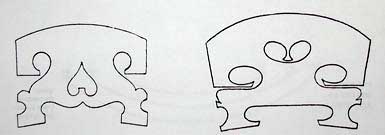
Two baroque bridges for the violin: Stradivari and Guarneri del Gesù
The bridge is of paramount importance for the performance of any string instrument, a fact not generally known. A bridge can completely transform the sound of a violin and can enhance the violin's playability, Therefore much thought has been bestowed upon the design of this tiny, thin and perforated piece of wood., both today and in times past. Shown here, the results obtained by the two most outstanding baroque master craftsmen of Cremona: on the left, the form designed by Antonio Stradivari (c. 1644-1737), on the right, the one by Giuseppe Guarnerius del Gesù (1698-1744). This second model has prevailed: the modern violin bridge developed from the Guarnerius model.
But take note: both of these bridges are in fact baroque. The Stradivari bridge is a baroque bridge, but not a modern one. The Guarneri one, on the other hand, is a baroque bridge, but also a modern one! Indeed, the original bridges of the Viennese Tradition from the 17th to the early 19th Century shown below resemble much more closely the Del Gesù version than the Stradivari one.
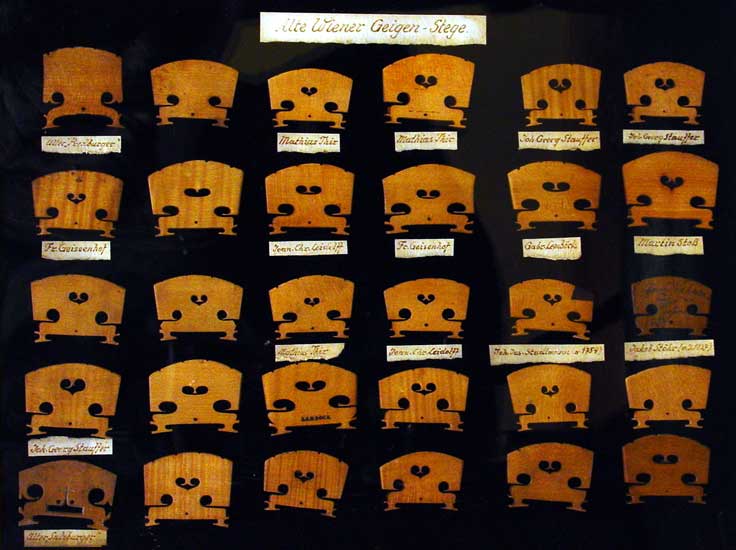
A collection of original bridges from Austrian instruments
of the 17th to 19th Century
(including Leidolff, Stadlmann, Thir, Stauffer, Stoss, Geissenhof and others)
Courtesy of Marcel Richters, Vienna
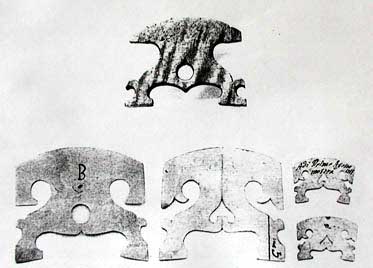
Various forms for bridges from the Stradivari workshop

The original Stradivari bridge for the Tuscany viola
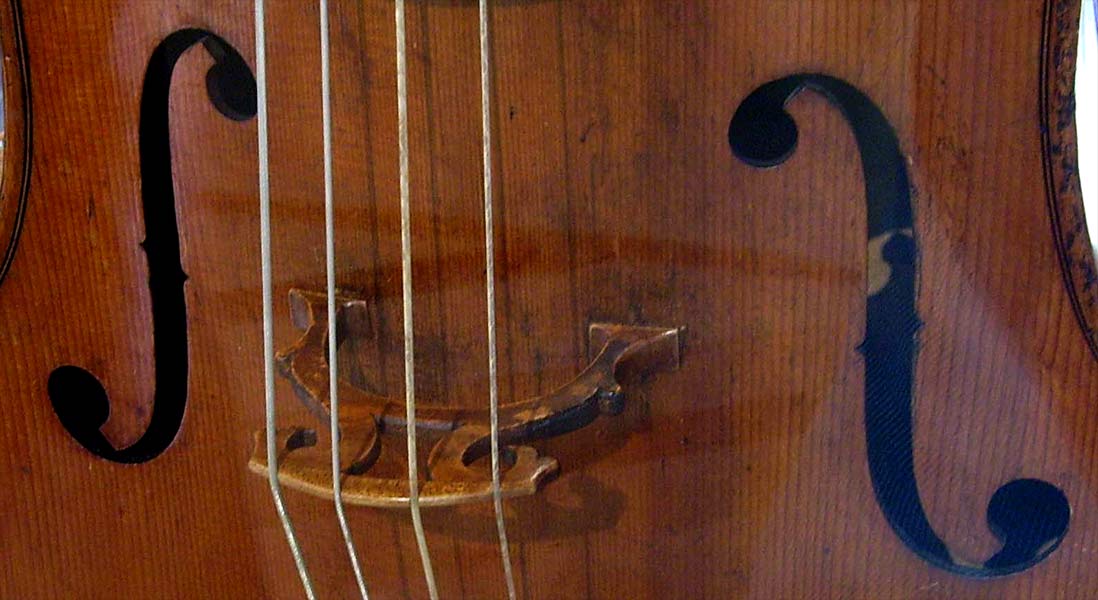
An original violoncello bridge on a Nicolò Amati instrument
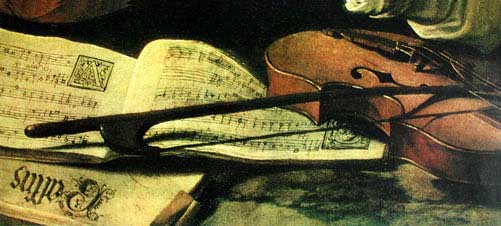
Caravaggio: late 16th C. bridge
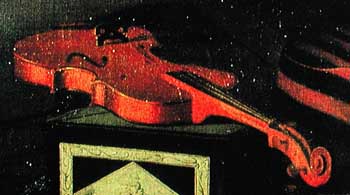 |
 |
|
Baschenis: bridges on a violin and on a viola
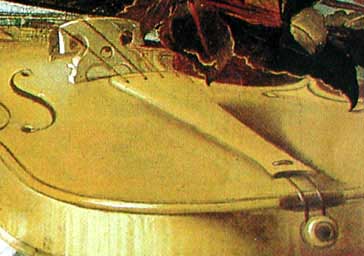 |
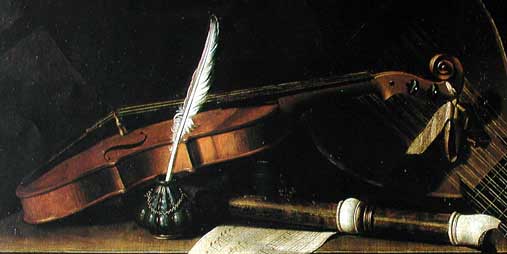 |
The variations in thickness of baroque bridges is demostrated in the above two examples: the first, realtively thick, the second rather thin.
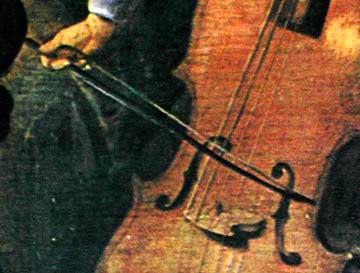
Bridge on a 17th. C. violoncello. Note also the underhand bow grip, typical of the viola da gamba and violone, but also in use on the violoncello in the 17th and early 18th C. The overhand grip was more common.
(More text and photos will be supplied at a later date)
words of wisdom | bridges on viols
updated